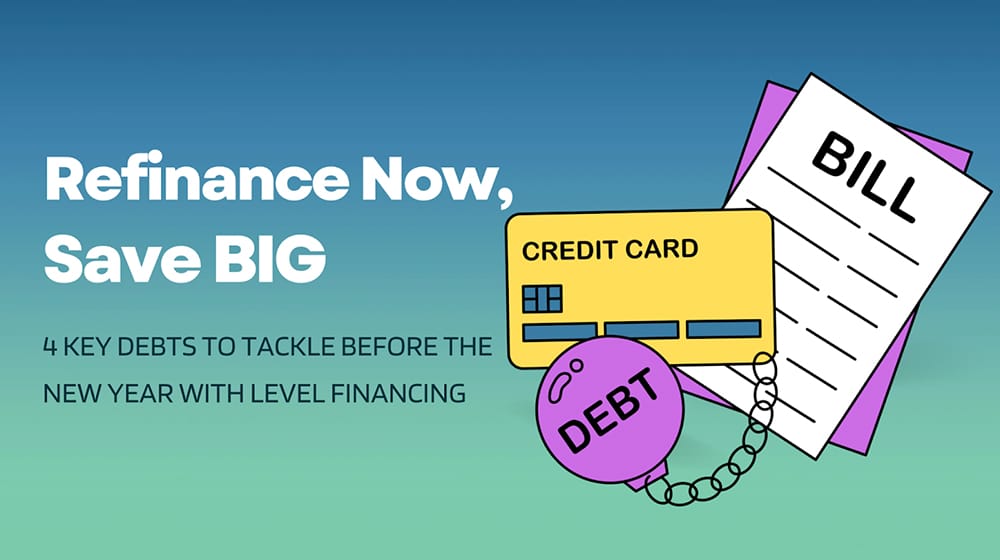Do you work for yourself? Has income been uneven lately?
A personal loan for freelancers may be the right solution for you. In this article, we will analyze the pros and cons and the best way to proceed.
Why Freelancers Use Personal Loans
Freelance work is infamous for strained cash flow. Income arrives in fits and starts based on client needs. You may land a huge project in one month, allowing you to coast comfortably. But the next month, that big client disappears, and you scramble to replace the income.
Ongoing living expenses like rent, utilities, car payments, and groceries remain constant no matter how wildly your income fluctuates month to month. This mismatch between variable freelance earnings and fixed costs inherently strains personal finances for those working independently. Suddenly, making rent becomes a white-knuckle affair every 30 days.
Bridging these inevitable financial gaps is where personal loans provide critical stopgap funding. The principal amount borrowed tides you over until that next big client contract comes through or you lining up enough piecemeal gigs to cover costs.
Personal loans also enable important business investments that may otherwise get deferred indefinitely due to cash constraints. For example, upgrading camera equipment to shoot higher-quality product videos for eCommerce clients. Or registering for an expensive industry conference that forges connections leading to a major contract.
But these kinds of strategic yet costly purchases are tough when every dollar must go toward basic operating expenses just to keep the lights on. With a personal loan, however, you can access lump-sum financing and spread out the expense over many months. This makes the previously impossible suddenly possible, especially when applying for a loan with trustworthy and competitive personal loan providers like Level.
Key Takeaway: Irregular income and business investments make personal loans useful for freelancers.

Qualification Criteria for Freelancers
Lenders want assurance you will repay loans. They check credit scores, income, assets, and existing debts.
- Credit history. Good credit scores reflect financial responsibility. Numbers above 670 help approval odds. If yours are lower, take time to improve it first.
- Income documentation. Show tax returns, bank statements, and projected earnings. Consistent income, even if modest, brings stability lenders seek.
- Low debt-to-income. Total debts compared to earnings indicate your ability to take on a loan. Under 36% is ideal. Pay down cards and loans first if higher.
- Assets. Savings and property show financial resources to draw on if needed to repay debts.
- Business standing. An established freelance operation signals continuity lenders want. Multiple long-term clients make you an attractive borrower.
Key Takeaway: Lenders assess credit, income, existing debts, assets, and business longevity to qualify freelance borrowers.
Why Personal Loans Work for Freelancers
Beyond immediate funds access, personal loans offer advantages well-suited for self-employed workers.
- Flexible use. No restrictions on how to use loan proceeds. Spend based on your evolving business needs.
- Fixed payments. Even installments help smooth uneven income streams. Consistent reduction of principal every month.
- Potentially lower rates. An unsecured personal loan often charges less interest than a credit card. This saves major money over time.
Loans fund immediate needs without forcing asset sales or business disruption. Payments fit within cash flow capabilities. Interest costs stay reasonable with good credit.
Key Takeaway: Flexible use of predictable payments at competitive rates makes personal loans useful funding mechanisms.
Know the Risks Before Borrowing
While personal loans fill important niches, they bring risks if used improperly.
- High rates with poor credit. Weak credit scores get slammed with interest charges. This buries borrowers in debt. First, build your profile.
- Tough approval odds. Lenders shy from unproven self-employment. Preparation separates winning applicants from rejects.
- Debt traps. Borrowing beyond means creates a downward spiral. Strictly limit loans to bare essentials. Have a robust repayment plan.
- Dependency. Easy money now can mean scrambling later. Don’t uses loans as Band-Aid for underlying issues.
With awareness and discipline, these risks do not materialize. But ignoring them sets the stage for a damaging downward slide.
Key Takeaway: Poor rates, rejection, unaffordable debt, and dependency are real hazards requiring caution.
Tips for Loan Approval
You can maximize approval chances through proper preparation. Lenders look for signals that reduce their risk exposure with borrowers.
- Boost credit score. Pay all accounts on time. Keep balances low. Errors get fixed immediately. A good credit history suggests you handle debts properly.
- Show steady income. Present paperwork evidencing clients, projects, and payments. Get on the payroll if possible. Consistency gives confidence to approve loans.
- Have a business plan. Show you operate strategically. Describe the market landscape. Explain how a loan helps achieve the vision in writing.
- Provide collateral. Backup assets reduce lender risk. Even small holdings make you more attractive than nothing.
- Bring a co-signer. A creditworthy co-signer reassures lenders and practically guarantees approval. Make sure to make all payments, though.
Key Takeaway: Improving credit, proving income consistency, having a plan, offering collateral, and bringing a co-signer to help with loan approval.

Final Thoughts
Personal loans allow freelancers important financial flexibility during lean periods. But borrowing irresponsibly presents hazards. Educate yourself on the pros and cons of loans for your situation. Apply only once fully prepared. With proper diligence, personal loans provide useful working capital funding.




